About us
IDN Global News
Sri Lanka Criticised for Not Signing the UN Nuke Ban Treaty
By J Nastranis
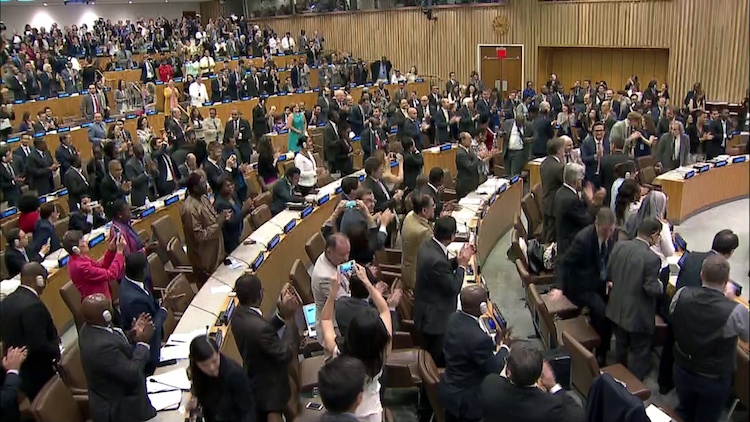
NEW YORK | COLOMBO (IDN) – Sri Lanka has refrained from signing the landmark UN Treaty on the Prohibition of Nuclear Weapons that was adopted by 122 countries on July 7, 2017 and opened for signature on September 20 at the UN headquarters in New York.
The decision not to sign the Treaty has triggered questions and concern at home and abroad. “Sri Lanka voted for the resolution adopting this very same Treaty [. . .], when we had a different Foreign Minister and Foreign Secretary. Has there now been a change of policy after a new minister assumed office?,” wonders the Friday Forum, a think tank based in Colombo, the capital city of Sri Lanka.
Sri Lanka Criticised for Not Signing the UN Nuke Ban TreatyRead More »
Reminiscing ‘War Criminal’ McNamara as Trump Spits Out ‘Fire and Fury’ on North Korea
Viewpoint by Jonathan Power*
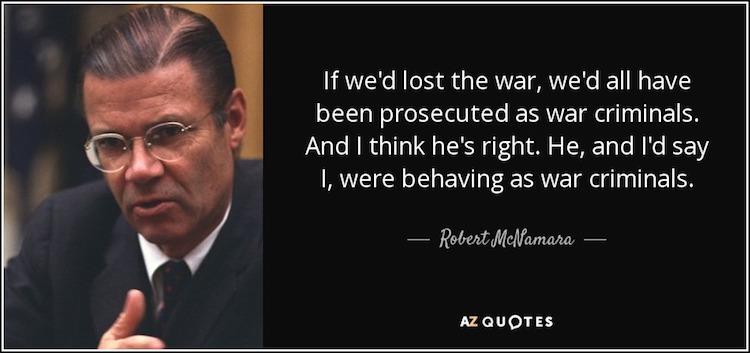
LUND, Sweden (IDN-INPS) – Out of the blue the war in Vietnam is in the news. Yet it is not the fiftieth anniversary of America’s defeat in Vietnam when North Vietnam caused it to flee. It’s only the forty-second.
Part of this must be fearful parallels with the moral and strategic blindness of President Donald Trump who seems to believe in uttering his life and death rhetoric, akin to President Richard Nixon’s on Vietnam, hoping to frighten the enemy into submission – in this case North Korea. Many people are worried that Trump is ready to fight America’s biggest war since Vietnam. As did Henry Kissinger, Nixon’s National Security Advisor, he appears to be considering the use of nuclear weapons.
Reminiscing ‘War Criminal’ McNamara as Trump Spits Out ‘Fire and Fury’ on North KoreaRead More »
Conference Calls for Nuclear-Test-Ban Treaty Becoming International Law
By Jamshed Baruah

UNITED NATIONS (IDN) – “A CTBT that is in force would be a milestone on the road to a world free of nuclear weapons. It has the potential to prevent a nuclear arms race and an escalation of regional and bilateral tensions,” said UN Secretary-General António Guterres. He was referring to the Comprehensive Test-Ban Treaty (CTBT) that bans nuclear testing on the Earth’s surface, in the atmosphere, underwater, and underground.
“Make no mistake: we need this Treaty,” said Miroslav Lajcák, President of the UN General Assembly. “I applaud the CTBT Preparatory Commission for raising awareness about the dangers associated with testing and for its partnership with the United Nations,” added Guterres.
Conference Calls for Nuclear-Test-Ban Treaty Becoming International LawRead More »
Kazakhstan Plans a Summit of Nuclear Weapon States with an Eye on a Nuke-free World
By Kairat Abdrakhmanov, Kazakhstan’s Minister of Foreign Affairs
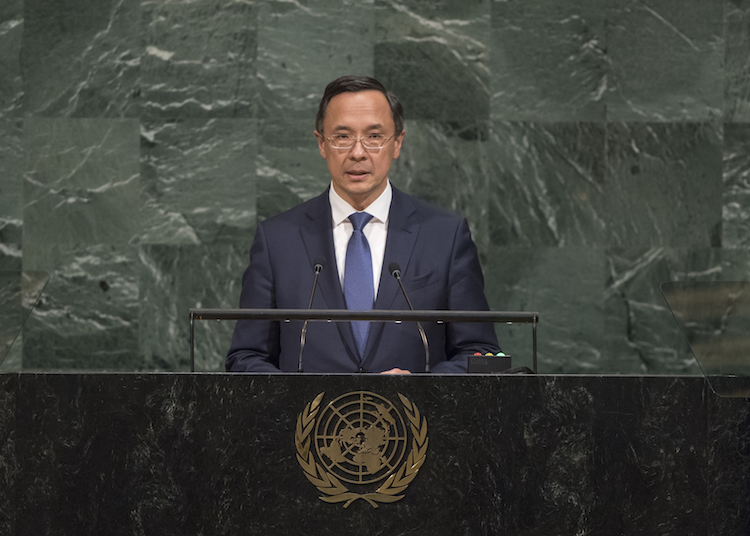
Following are extensive excerpts from Kazakhstan’s Foreign Minister Kairat Abdrakhmanov’s address to the United Nations General Assembly on September 21, 2017 in New York. He draws attention to President Nursultan Nazarbayev’s initiative “to convene a summit of all states possessing nuclear weapons to collectively discuss further steps towards their nuclear disarmament and attaining nuclear-weapon-free world,” and “to call for joint efforts to ensure that the Treaty on the Prohibition of Nuclear Weapons enters into force by 2020″, the 50th anniversary of the Treaty on the Non-Proliferation of Nuclear Weapons entering into force.” – The Editor
Kazakhstan Plans a Summit of Nuclear Weapon States with an Eye on a Nuke-free WorldRead More »
U.S. State Secretary Lauds Kazakh Decision to Renounce Nukes
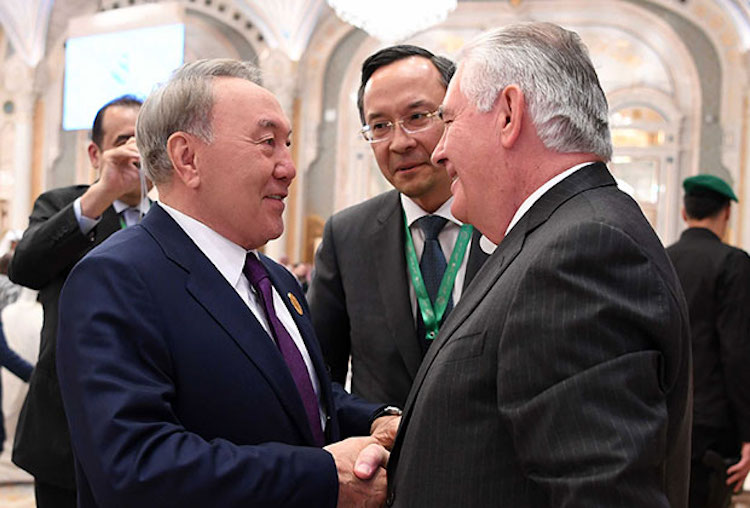
UNITED NATIONS (IDN) – “The Republic of Kazakhstan is a particularly illustrative example of the wisdom of relinquishing nuclear weapons,” according to Rex W. Tillerson, the U.S. Secretary of State. He was addressing the United Nations Security Council Session on Nuclear Non-Proliferation on September 21, 2017.
“In partnership with the United States, and aided by the Cooperative Threat Reduction Act spearheaded by U.S. Senators Sam Nunn and Richard Lugar, Kazakhstan opted to remove from its territory former Soviet weapons and related nuclear technologies, and joined the Non-Proliferation Treaty as a non-weapons state,” Tillerson added.
U.S. State Secretary Lauds Kazakh Decision to Renounce NukesRead More »
The Threat of a Nuclear Attack Remains a Grim Reality
By Rex W. Tillerson, the U.S. Secretary of State
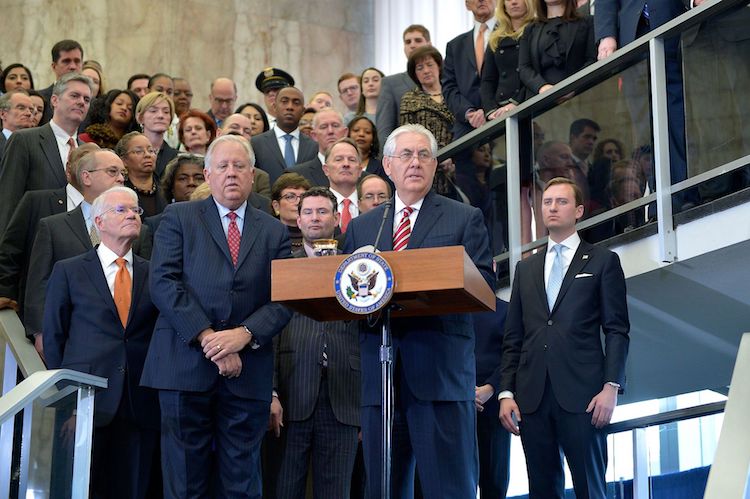
Following are extensive excerpts from remarks by the U.S. Secretary of State during the United Nations Security Council Session on Nuclear Non-Proliferation on September 21, 2017. The complete text is available on https://www.state.gov/secretary/remarks/2017/09/274362.htm – The Editor
UNITED NATIONS (IDN) – At a time when stabbings, crudely constructed bombs, and trucks driven into crowds of innocent men, women, and children are often our enemies’ weapons of choice to attack us, it is easy to become complacent and see the threat of nuclear attacks as a relic of the Cold War.
The Threat of a Nuclear Attack Remains a Grim RealityRead More »
UN Treaty Signing a Significant Step Towards a World Free of Nuclear Weapons
By Shanta Roy

UNITED NATIONS (IDN) — The international community took its first significant step towards a world free of nuclear weapons when over 50 countries signed a landmark treaty, which was adopted by UN member states on July 7.
The signing ceremony, which began September 20 on the sidelines of the 72nd session of the General Assembly, is expected to continue, as more countries will join the list of signatories to a treaty that was overwhelmingly voted on by 122 countries, with one against (Netherlands) and one abstention (Singapore). [P 21] ARABIC | GERMAN | JAPANESE TEXT VERSON PDF | THAI
UN Treaty Signing a Significant Step Towards a World Free of Nuclear WeaponsRead More »
Opening for Signature of the UN Treaty a Milestone for Prohibiting Nuclear Weapons
By Sergio Duarte, Ambassador, former U.N. High Representative for Disarmament Affairs*

UNITED NATIONS (IDN) – The opening for signature of the Treaty on the Prohibitions of Nuclear Weapons on September 20 at the United Nations in New York marks a milestone in the long history of efforts by the international community to eliminate the most destructive and cruel of all weapons invented by man.
The wide adherence to the negotiating process of the Treaty, carried out with the strong support of civil society organizations, reflected a growing global recognition that a ban on nuclear weapons is an integral part of the normative framework necessary to achieve and maintain a world free of such weapons. It is not a hasty or impromptu movement born out of frustration for the protracted lack of concrete progress on nuclear disarmament or by humanitarian considerations. Rather, it responds to a longstanding aspiration of humanity. [P 20] | CHINESE TEXT VERSON PDF | JAPANESE TEXT VERSON PDF
Opening for Signature of the UN Treaty a Milestone for Prohibiting Nuclear WeaponsRead More »
Heed the Voices of the Hibakusha Urging All States to Sign the Treaty on the Prohibition of Nuclear Weapons
By Dr. Daisaku Ikeda, President, Soka Gakkai International (SGI)
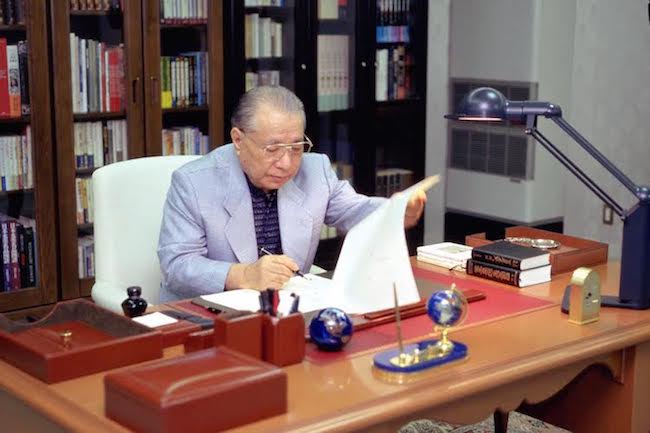
TOKYO (IDN) – The Treaty on the Prohibition of Nuclear Weapons, adopted this past July at the United Nations, will soon be opened for signature. The negotiations that produced this Treaty saw the participation of nearly two-thirds of all UN member states, and it is deeply moving to witness the first concrete steps toward the Treaty’s entry into force. I earnestly hope that the initial 122 countries that supported its adoption will be joined by other states becoming signatories to the Treaty, so that it can become international law as quickly as possible.
The quest for a world without nuclear weapons was the focus of the first UN General Assembly Resolution adopted in January 1946, soon after the birth of the United Nations. In the more than seven decades since, nuclear disarmament has been the subject of repeated resolutions. [AD01] ITALIAN | JAPANESE
Ratify the CTBT – Ban Nuclear Testing
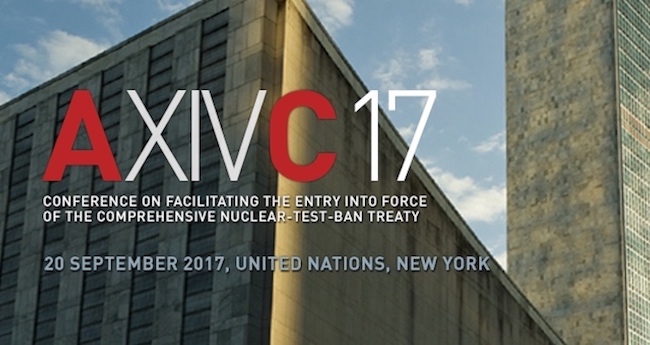
By Didier Reynders, Deputy Prime Minister and Minister of Foreign Affairs of Belgium, Ibrahim Al-Jafari, Foreign Minister of Iraq and Lassina Zerbo, Executive Secretary of the Comprehensive Nuclear Test Ban Treaty Organization (CTBTO).
The nuclear test conducted by the Democratic People’s Republic of Korea (DPRK) on September 3, 2017 sent shockwaves not only through the inner layers of the earth, but also throughout the international community – particularly as initial estimates of the magnitude of the blast were released.
The treaty prohibiting nuclear testing was signed 20 years ago, but is still not in force. While North Korea continues to develop its nuclear capacity by testing, it seems more urgent than ever to ratify it. The international community would do well to strengthen international law. Belgium, Iraq and the CTBTO will do their part.
Ratify the CTBT – Ban Nuclear TestingRead More »
More Articles...
- 1. The Challenge of Nuclear Submarine Proliferation
- 2. Mayors for Peace Say the Danger of Nuclear War Is Real and Growing
- 3. Middle East Nuclear-Weapons-Free Zone, Long Elusive, is Making Progress, say Experts
- 4. Die Eliminierung von Interkontinentalraketen würde die Chancen eines globalen nuklearen Holocaust erheblich verringern
- 5. Elimination of ICBMs Would Greatly Reduce the Chances of a Global Nuclear Holocaust
Search
Newsletter
Report & Newsletter
Toward a World Without Nuclear Weapons 2022






